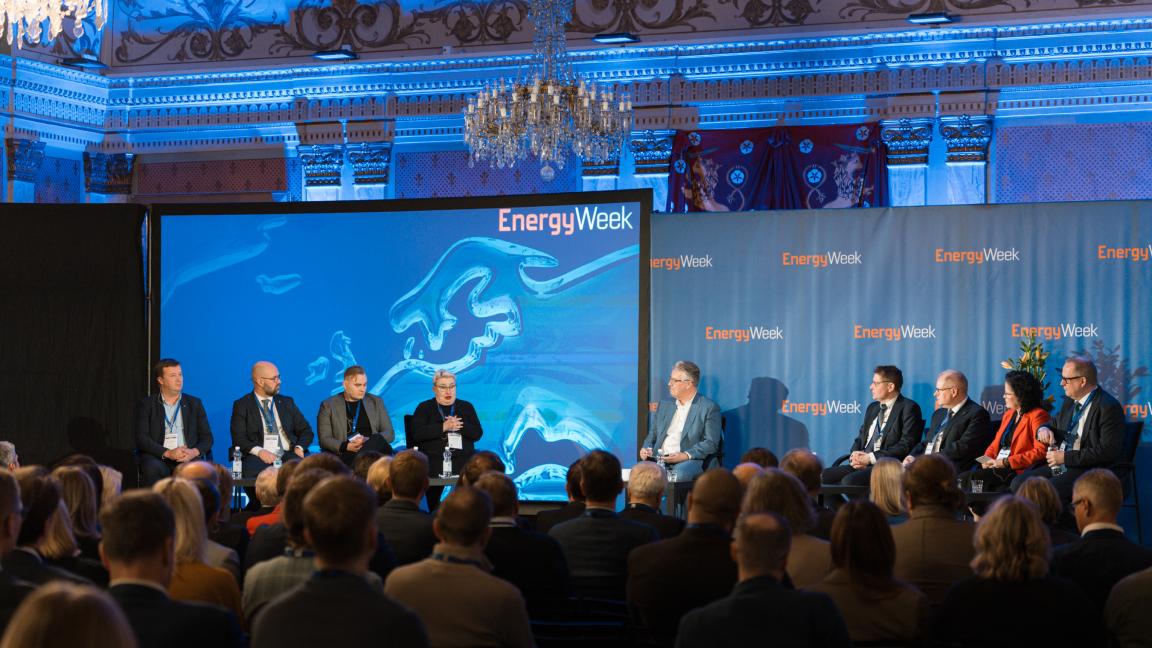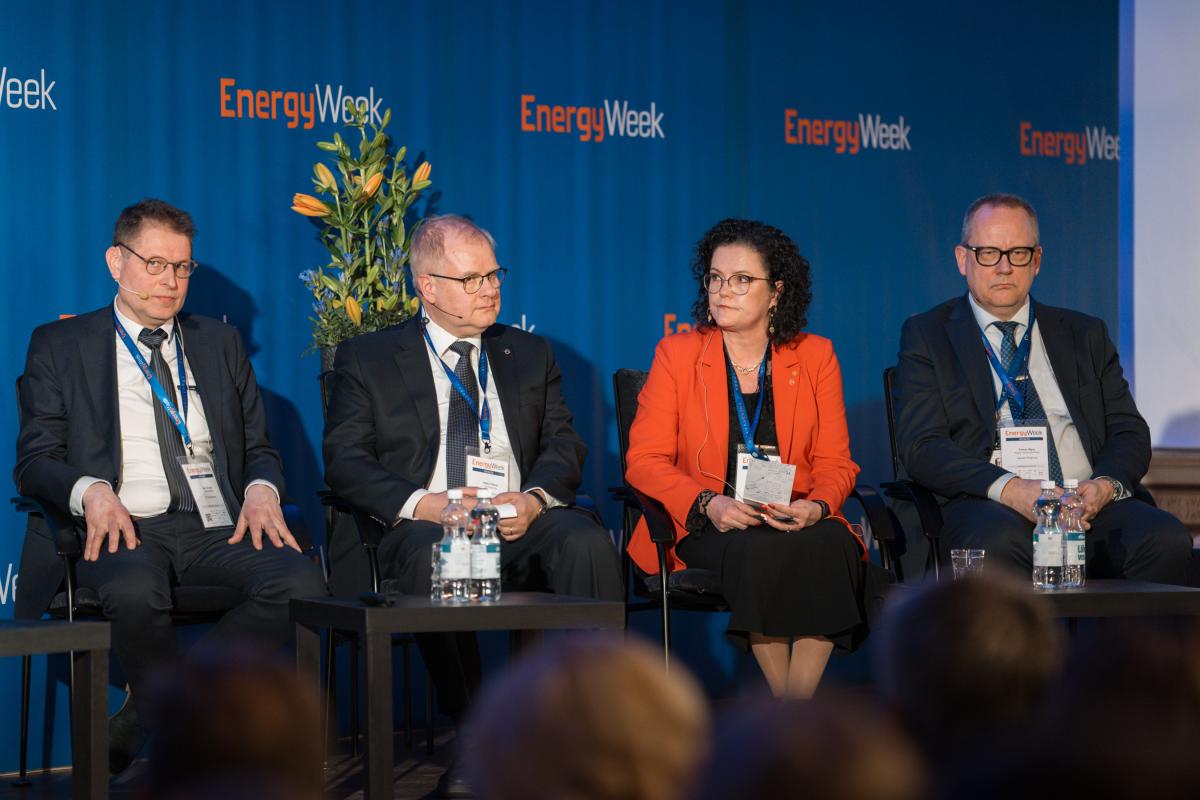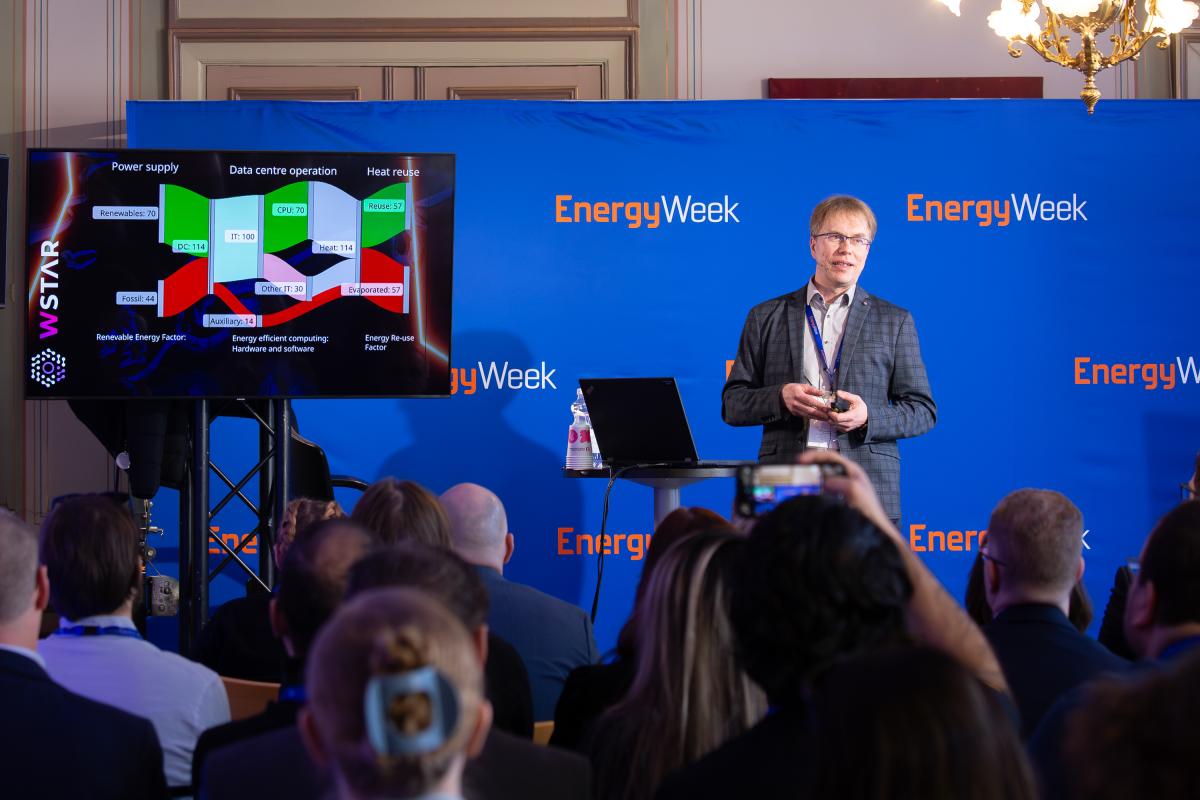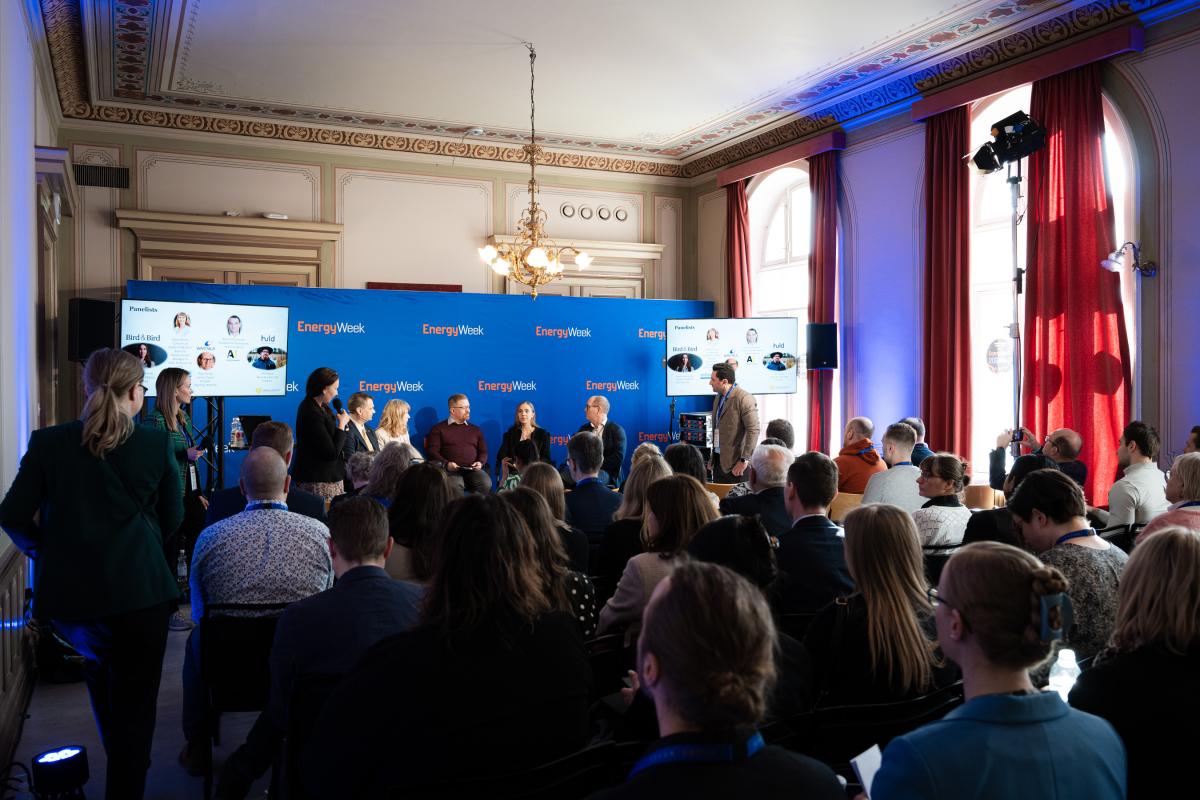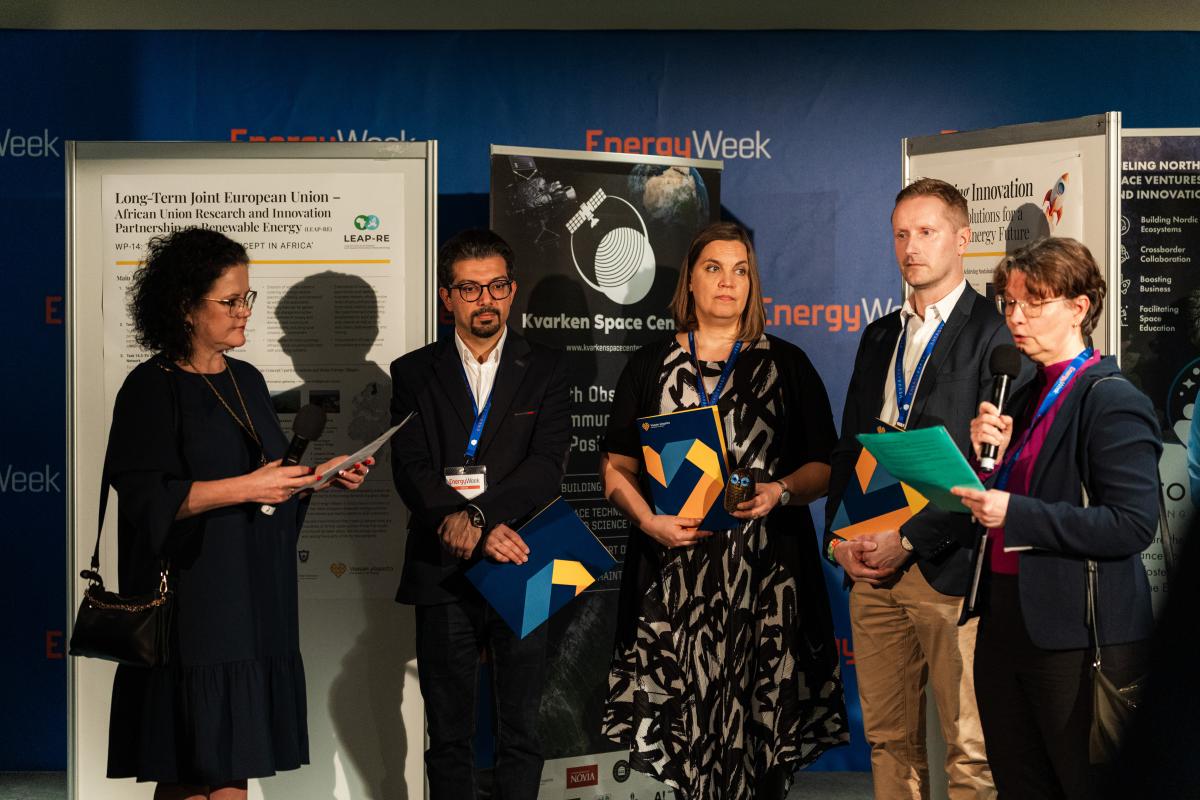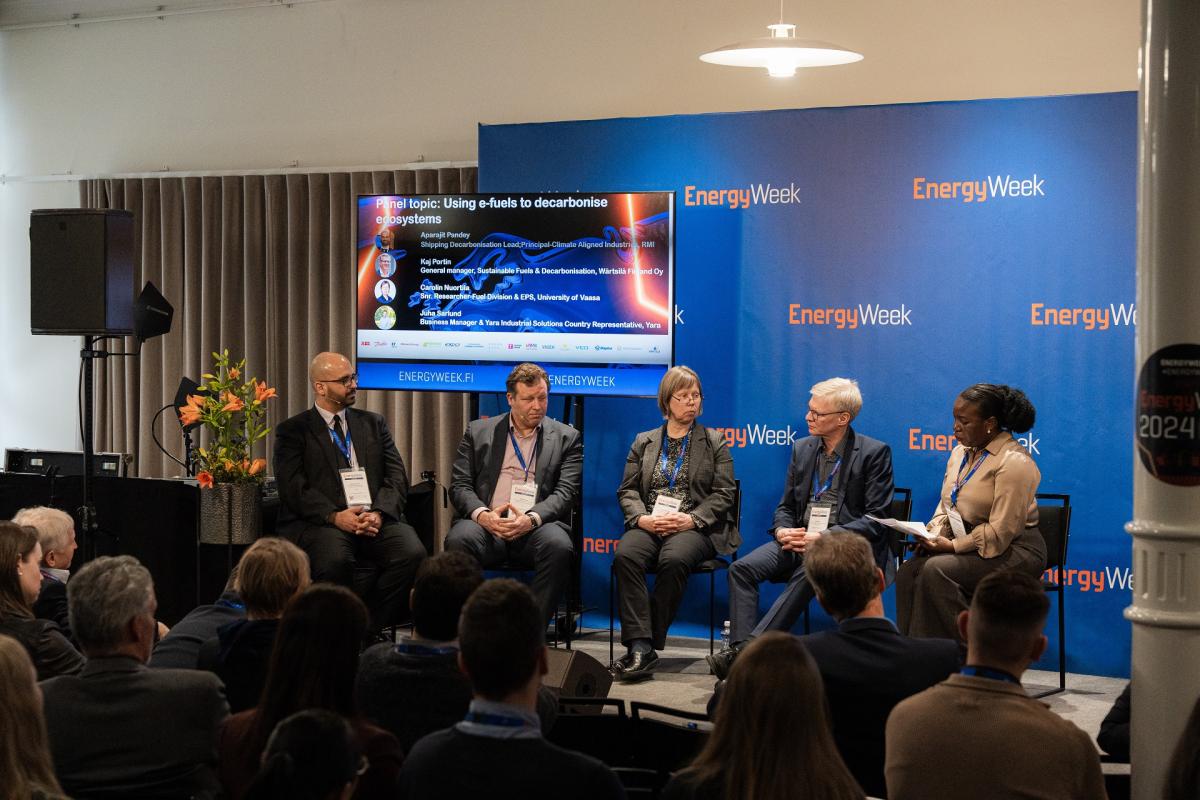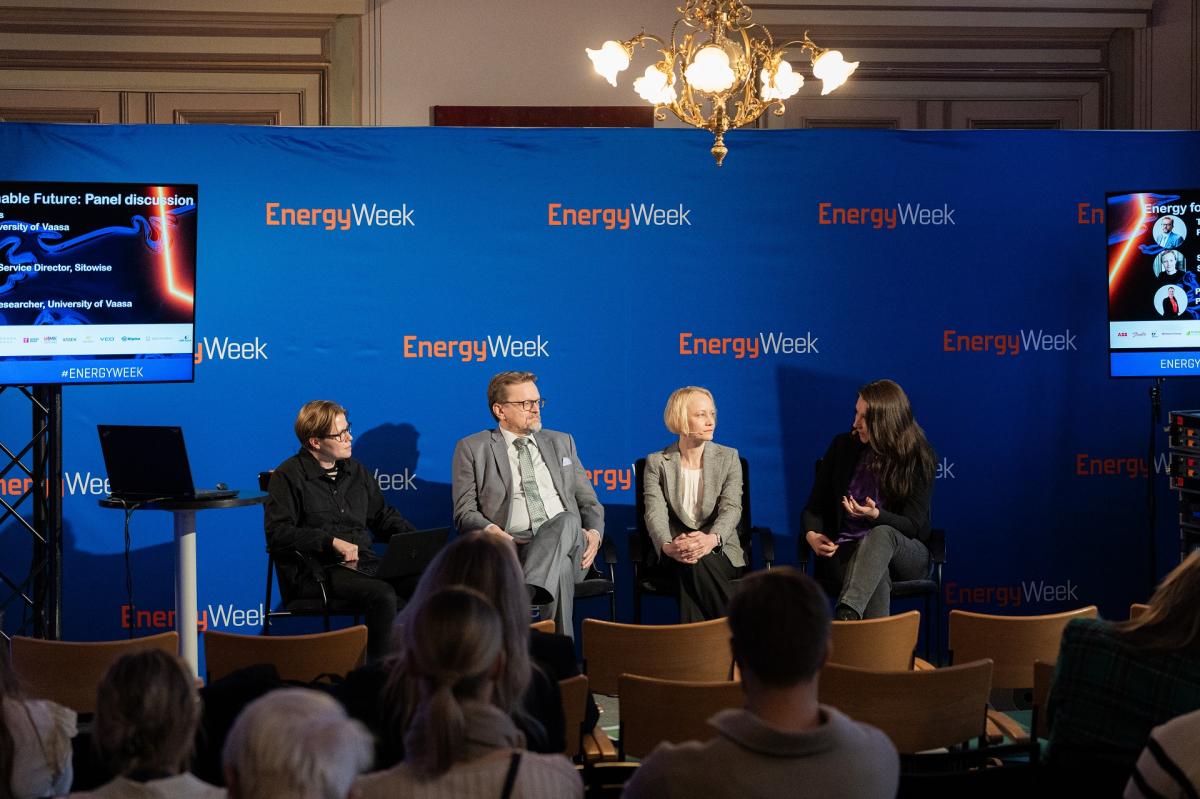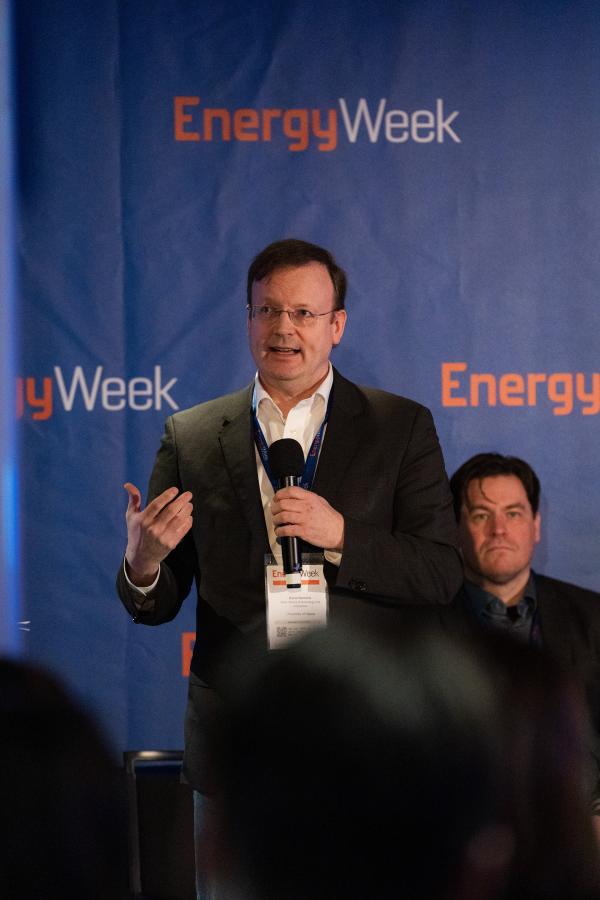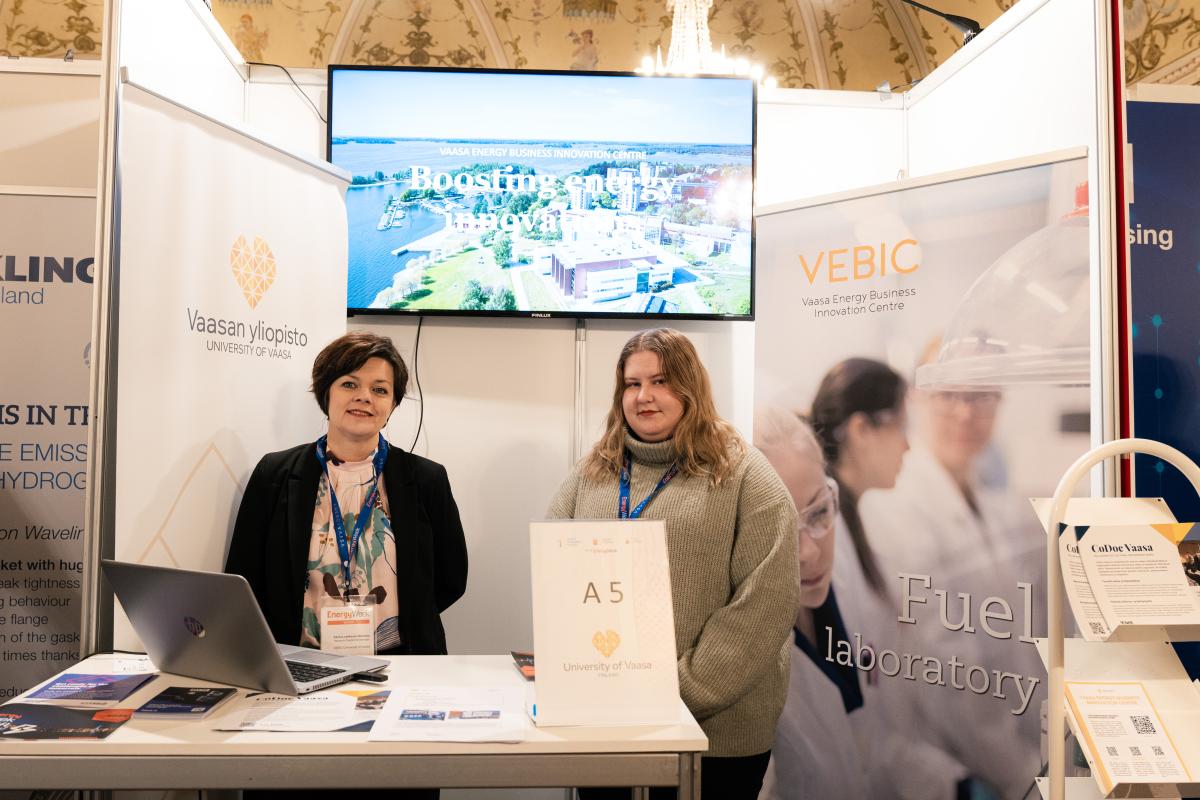Green transition, energy transition, and sustainable business are key to Finland’s economic growth
On Monday, Minna Martikainen, Rector of the University of Vaasa, took part in a panel discussion at the Energy & Climate Seminar. The topic of the discussion was "Green transition at risk – the will is there, but where is the action?".
Martikainen stressed that Finland's vitality must be preserved. Without export, the country cannot survive in global competition. Green transition, the energy transition it enables, and sustainable business are key to the economic growth that Finland desperately needs.
– Finland has the know-how, but the private and public sectors must have a shared vision. The needs of business life should be better considered in the government’s RDI investments. Bigger investments are needed especially in areas that are important for sustainable business growth, green transition, and competence-based security of supply, Martikainen said.
Martikainen pointed out that universities must educate international talents and integrate them into society and businesses already during their education. This is a way of ensuring that Finland has expertise in the future. Finally, she stressed the importance of research cooperation between universities and businesses as the panellists shared their views on the key factors for Finland's success.
– I will do my utmost to ensure that the University of Vaasa is a responsible educator and developer of R&D competence. Together with the energy cluster in the Vaasa region, we will pave the way for green transition.
The panel discussion was moderated by Jussi Kärki, editor-in-chief of Talouselämä. The panel included Tomas Häyry, Mayor of Vaasa, Sami Kivioja, CEO of CO-Engineering, Minna Martikainen, Rector of the University of Vaasa, and Pekka Tiitinen, Managing Director of ABB Finland. Politicians on the panel included MEP Sirpa Pietikäinen and Members of Parliament Kim Berg, Atte Harjanne, and Janne Jukkola.
From energy-hungry data centres to zero-emission data centres
At the Zero Emission Data Centre seminar on Tuesday, Associate Professor Petri Välisuo presented a new WSTAR project that will set up a research infrastructure for zero-emission data centre solutions in Technobothnia.
In his presentation, Välisuo emphasised that the WSTAR project will introduce data centre research into Vaasa's energy cluster.
– Vaasa is the right place to study energy consumption in data centres, Välisuo said.
Plans for the data centre laboratory at Technobothnia are currently underway.
– The first part of the data centre will be built in autumn 2024. The aim is to create a research environment where we can study liquid cooling and other cooling technologies, as well as heat recovery technologies, among other things.
Cyber security will play a vital role in future energy systems
A more decentralised and smart energy system means challenges in terms of cyber security. It is not enough to look at the issue from a single perspective.
The panel discussion on energy transition and cyber security, organised by the REDISET project and the VEBIC research platform, brought together a diverse group of panellists representing IT, OT, legislative and socio-cultural perspectives.
– Cyber security in the energy transition should be considered and analysed at a systemic level, said Petra Berg, a researcher at the University of Vaasa, who co-chaired the panel with Bahaa Eltahawy and Linda Turtola.
The method chosen for the panel was storytelling. The panellists Sonja Berjlin, Olli Rajala, Hertta Hytinantti, Reino Virrankoski, and Ross Bailey continued the story after the questions. For example, the first question on who is responsible for cyber security in an OT system generated a lively discussion. All the individuals within the organisation and the different actors in the network was the common answer. However, Postdoctoral Researcher Reino Virrankoski from Aalto University pointed out that responsibility must be defined by functions, otherwise it can easily happen that no one takes responsibility in a joint responsibility.
Watch the recording of the panel discussion on energy transition and cyber security.
Space technologies open new opportunities for many different sectors
Powered by Space seminar on Tuesday discussed how space technologies and solutions can play an important role in addressing some of the challenges in sustainable energy and climate change.
Heidi Kuusniemi, the director of University of Vaasa's research platform Digital Economy and Kvarken Space Center, held an opening speech at the seminar. The Kvarken Space Center promotes satellite technologies, data and applications in various forms and highlights their importance in the digital infrastructure of today.
– The Kvarken Space Center plays a key role in fostering cooperation within the Nordic countries in space activities. It also serves as an innovation hub for space technology in the region, Kuusniemi highlighted.
Leveraging the developments in space technology in sectors such as energy, maritime, IT, forestry, and construction presents significant opportunities for the future.
Awards for science communication and innovation
The three research platforms of the University of Vaasa, that is VEBIC, Digital Economy, and InnoLab, organised a research exhibition on energy on Wednesday. The exhibition attracted a record number of visitors compared to previous years – more than 300 people registered. At the research exhibition, university researchers presented their scientific posters and discussed their research and projects with the audience.
The University of Vaasa Science Communication Award and the new University of Vaasa Innovation Award were also announced at the event. Professor Heidi Kuusniemi received the Science Communication Award, while Professors Miadreza Shafie-khah and Sami Vähämaa received honorary mentions for their excellence in science communication. Professor Mohammed Elmusrati and doctoral student Mahmoud Elsanhoury received the University of Vaasa Innovation Award.
Towards greener marine transport together
The second gas seminar of the week titled Using e-fuels to decarbonise ecosystems was held on Thursday. Carolin Nuortila, researcher in energy technology at the University of Vaasa, co-presented with Kaj Portin from Wärtsilä Finland on greener marine transport and R&D cooperation between business and academia. Nuortila also took part in a panel discussion together with Kaj Portin, Cynthia Söderbacka (Novia University of Applied Sciences), Aparajit Pandey (RMI), and Juha Sarlund (Yara).
Money talks? Renewable energy is a key enabler in mitigating the climate change
Sustainability has become a key issue in the energy sector. Energy for Sustainable Future seminar, organised by the University of Vaasa, focused on sustainability and green transition from different perspectives. Professor Timo Rothovius, Associate Professor Heidi Hirsto, and Postdoctoral Researcher Petra Berg from the University of Vaasa, and Suvi Monni, Sustainability Service Director at Sitowise, offered insights into the finance and business aspects as well as marketing and communication aspects of sustainability and green transition.
Renewable energy is a key enabler of climate change mitigation. Rothovius told that fossil fuels currently account for 79% of the world’s energy production. The share of coal is going down, but as the demand for electricity continues to grow, we are still using more coal and its use is also increasing, as is the use of oil. We are building lots of new wind and solar power, but fossil fuel usage is still increasing, not decreasing.
– A lot of investments are made in renewables, but almost as much in fossil fuels. If you are an investor looking only at the money, investing in fossil fuels may be worthwhile, but we should look at the bigger picture. The western countries are no longer so much a problem, but non-OECD countries are still investing heavily in fossil fuels. Most important thing is for non-OECD countries to get on board, which is not easy. Also, fossil fuel subsidies are going up until 2030. We need policy changes, said Rothovius.
Monni pointed out that when we talk about sustainability, we are talking about the biggest challenges of our time and how we address them, such as climate change, linear economy, biodiversity loss, inequality, and the energy crisis.
– They are all connected, and in a sustainable future, they have been effectively tackled. Renewable energy is a key solution to keep global warming below 1.5 to 2 degrees.
Hirsto reminded of the importance of communication, since a company must communicate, both within its organisation and to others, that it is and wants to be a responsible company. Key values in communication are openness, transparency, accountability, and trust.
– From reporting “responsibility deeds”, we should move towards a responsible organisational and brand identity, towards on-going co-constitution and shaping of responsibility through communication.
Berg pointed out that the dominant social paradigm of western societies lies in that material and eternal economic growth are seen as necessities for well-being in society.
– How can we learn to let go of it? If you want to have a long-term impact on people's behaviour, scaring them will not work.
Watch the recording of the Energy for Sustainable Future seminar
Students got to roast representatives of universities and companies in the region
At the Energy Academy's Back to the Future roasting event, representatives from universities and local companies had the chance to answer students' tricky questions.
Raine Hermans, Dean of the School of Technology and Innovations, was one of the people being roasted.
One of the questions he was asked was about why Finnish students are not attending online lectures, while international students do attend. Hermans said that this is quite true, that it is easy to turn off the camera and attend lectures only in pretence.
– Fortunately, in remote lectures, students' names are visible, so they can be asked questions by name. Some teachers also have strict criteria for what counts as attendance in lectures and often require the camera to be turned on.
Hermans also stressed the importance of teachers and students getting to know each other, which would lead to more enthusiastic attendance.
– We need to make sure that students and teachers also meet on campus and get to know each other.
